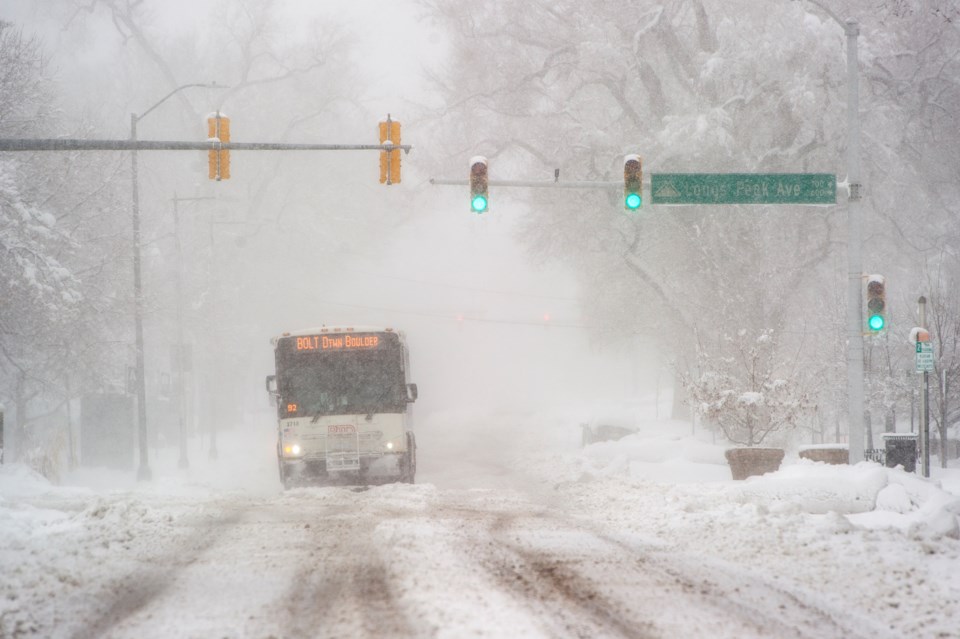A $8 million study of the feasibility of implementing a “peak service” rail service for northwest communities including Longmont honors a 17-year-old promise made under the Regional Transportation District’s FasTracks plan, RTD board members said this week.
By a 12-3 vote, the RTD Board of Directors voted for the northwest rail study, saying northern communities have contributed tax dollars to the ongoing FasTracks plan and deserve to explore whether limited service will attract enough riders on existing Burlington Northern Santa Fe track to make the scaled-back proposal feasible, according to an RTD press release.
The study also will answer whether a northwest rail corridor can be built in collaboration with a proposed Front Range Passenger Rail district, said RTD Board Chair Angie RIvera-Malpiede. The district, as planned, would extend passenger rail from Fort Collins to Pueblo.
“We did make a promise to the northwest region,” Rivera-Malpiede said in the news release. “I think it is exciting. We may have some amazing opportunities to collaborate with the Front Range Rail.”
Under the peak service plan, three morning trains would operate from Longmont to Denver and three evening trains would run in the opposite direction. Each trip would run about 60 to 70 minutes, according to an RTD news release.
A full-blown northwest rail service that would reach Longmont was among the projects proposed in the 2004 voter-approved FasTracks plan. The plan called for B Line commuters to travel from downtown Denver to Longmont and other communities in Boulder County by 2017.
Cost overruns prompted RTD to shelve the B Line, as well other FasTracks projects. Some critics have called for Longmont to pull out of the district, noting Longmont has pitched in over $60 million into FasTracks even though rail has yet to reach the city.
RTD estimates that completing the four unfinished FasTracks projects — including the B Line — would cost over $2 billion and the earliest the B Line could be finished is 2040.
The RTD board, this week, also approved that the money to pay for the $8 million study comes from an internal FasTracks account that was set aside to study alternatives to the original FasTracks plan.
RTD Directors Bobby Dishell, Julie Bouquet and Shontel Lewis voted against the new study, with Dishell saying the study was pointless.
“We’re undertaking a study to answer questions we already know (the answers to), '' said Dishell, according to the news release. Projected ridership is low on the northwest corridor and the investment expensive, Dishell said.
Lewis said the district’s maintenance backlog should take precedence. “I’m not saying no to Boulder, and I’m not saying no to Longmont,” Lewis said. “I’m saying yes to equity, and I’m saying yes to our long-term success. We need to concern ourselves with the needs of the entire district.”
Directors Erik Davidson, Vince Buzek and others said the study is about engaging the community and providing a common set of numbers that demonstrate the size of the investment needed and the projected ridership if it is built, the news release states.
“These arguments about equity are hollow,” Buzek said in the news release. “You have economically challenged, transit-dependent people who live along this line.”



